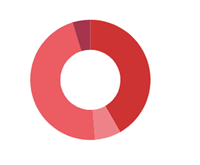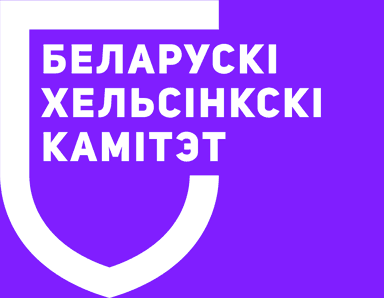
The expert elections*2024 observation mission was organized by the Belarusian Helsinki Committee and the Viasna Human Rights Center as part of the "Human Rights Defenders for Free Elections" campaign. The mission collects and analyzes information about the election campaign based on open sources and messages from voters from Belarus.
CONCLUSIONS
A single voting day was introduced in Belarus based on the results of constitutional amendments in the 2022 referendum. The elections of deputies of the House of Representatives of the 8th convocation and local Councils of Deputies of the 29th convocation were scheduled for February 25, 2024 by Decree No. 367 of November 20, 2023.
The expert mission for independent monitoring of the elections of deputies on a single voting day on February 25, 2024, within the framework of the "Human Rights Defenders for Free Elections" campaign, uniting the Viasna Human Rights Center and the Belarusian Helsinki Committee, aims to assess the electoral process from the point of view of Belarusian legislation and international standards of free and democratic elections, inform the Belarusian public and the international community on the preparation and conduct of the elections*, as well as on the results of the observation.
The 2024 elections* in Belarus were conducted in conditions of incessant repression; in the virtual absence of freedom of expression, peaceful assembly and association; in a climate of total fear and political purge. Repressions against any manifestations of what is perceived by the authorities as political activity continue; independent media and hundreds of civil society organizations, including all human rights organizations, have been liquidated. After re-registration, 4 political parties out of 16 remained in the country, all opposition parties were liquidated, and their members cannot carry out party activities under threat of criminal prosecution under Article 193-1 of the Criminal Code of the Republic of Belarus, which was returned to criminal law in early 2022.
After the post-election crisis of 2020 and the constitutional changes of 2022, there have been significant changes in the legal regulation of elections. These changes are aimed at reducing the role of parliament, narrowing the circle of participants in electoral processes, limiting the electoral rights of citizens and increasing the control of the authorities over the electoral process.
The monitoring of all stages of the election campaign conducted by the "Human Rights Defenders for Free Elections" campaign allows us to conclude that the elections* of deputies of the House of Representatives of the 8th convocation of the National Assembly and local Councils of Deputies of the 29th convocation did not meet international standards for democratic and free elections, and were accompanied by numerous violations of the electoral legislation of the Republic of Belarus. All stages of the electoral process were not just administratively controlled by the authorities, but were organized by them to retain power and simulate popular support and consensus in society. This is evidenced by: the lack of transparency in the formation of election commissions; the vertical of power controlling the lists of persons nominated and registered as candidates; campaigning which imitated political activity, while events and their media coverage were focused on general calls to come to vote; persistent forcing of voters to participate in early voting; a climate of intimidation with bans on taking photos and taking away ballots, rhetoric about "extremist plans" and police officers at all polling stations; an opaque procedure for counting votes; the complete absence of independent observers.
The term "elections*" in relation to the 2024 election campaign is used with an asterisk by the "Human Rights Defenders for Free Elections" campaign to emphasize the perfunctory nature of this term, since any free and fair election campaign presupposes, first of all, conditions where rights and freedoms are fully realized, including freedom of speech, freedom of peaceful assembly and association, the right to take part in the conduct of public affairs, freedom from discrimination, which is currently practically absent in Belarus.




